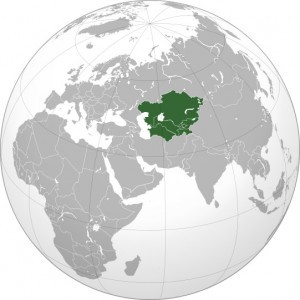BISHKEK (TCA) — The Times of Central Asia presents to its readers Stratfor’s Global Intelligence, a weekly review of the most important events that happened in the world — from Europe to Middle East to Russia to Central Asia to Afghanistan to China and the Americas.
The Week That Was
Brexit?
It was a historic week, no doubt, with more momentous events to come as the Brexit saga unfolds. The decision made by 51.9 percent of British citizens sent markets scrambling worldwide.
With such a close (yet legally nonbinding) vote, it raises a question as to whether British Prime Minister David Cameron’s successor could stall a Brexit and reassess before triggering Article 50 of the Lisbon Treaty and starting the two-year process of negotiating the EU exit.
Former London Mayor Boris Johnson of the “leave” camp, who could even take Cameron’s place, was cagey in earlier statements about his intentions in boosting the referendum. Johnson said in February that “there is only one way to get the change we need, and that is to vote to go, because all of EU history shows that they only really listen to a population when it says No.” But has the train left the station on this point? With a record turnout and a majority “leave” vote, the next British prime minister certainly has the political mandate to move ahead with the exit strategy. So, a few points to keep in mind on what to watch for in the United Kingdom:
• The referendum is nonbinding. Ignoring its result would be politically risky but not illegal.
• Cameron will resign in October. Article 50 of the Lisbon Treaty will not be launched for at least three more months. Nobody can kick the United Kingdom out of the EU before that happens.
• The Conservative Party will have to appoint a new prime minister. This is when things get interesting. The party may fail to appoint a new leader, which would trigger elections. The new prime minister may face a vote of no confidence from parliament, which would also trigger elections.
• If the United Kingdon holds new elections, parties can campaign on a promise to hold a second referendum. If the Labour Party wins the election on the promise of a new referendum, it may feel it has the legitimacy to ignore the current referendum.
There are two key things to watch:
• The stability of the ruling Conservative Party. Failure to find a replacement for Cameron would trigger elections.
• The reactions of the British population. Many people who voted “leave” may change their minds if the economic impact in the coming weeks is too deep to tolerate.
We will be watching the referendum frenzy on the Continent as various Euroskeptic parties try to take advantage of the anxiety in Brussels by threatening their own votes and issuing demands. Already, Geert Wilders in the Netherlands and Marine Le Pen in France are calling for referendums of their own. This plays right into Russia’s hands as it counts on wider European divisions to negotiate more effectively with the West and distract Europe from matters to its east.
Poland is bracing itself for stricter requirements on work permits, while the Netherlands, Ireland and Belgium (the United Kingdom’s main trade partners), will lean hard on Brussels to expedite a free trade agreement with London. The southern periphery countries will need to be closely watched as their financial stresses grow and put to the test the European Central Bank’s pledge to do “whatever it takes” to keep borrowing costs to a tolerable level. France and Germany are meanwhile left in an uncomfortable position. They represent the core of the European Union and they will try to defend the virtues of integration, but the credibility of the argument will continue to erode as Euroskepticism grows on the Continent.
Beyond Europe, we are watching for the global impacts of the European economy. If Europe slides back into recession there would be a number of second-order effects. The relative oil market recovery we have seen develop this summer would be derailed, putting Saudi Arabia, Iraq, Nigeria, Venezuela, Russia and others in an even tougher spot than they are now. China has the means to manage short-term jolts to the yuan, but deeper cuts to its export market would cause China’s already shaky balance between applying short-term band-aids while trying to restructure for long-term growth to teeter. The world’s major central banks are meanwhile suffering: the Bank of England may need to raise rates to stem the plunge of the pound while inviting recession, the U.S. Federal Reserve will hold off on interest rate hikes for the rest of the year, the Bank of Japan is already running out of steam in quantitative easing and will debate more unconventional methods to stimulate growth, the European Central Bank, while legally equipped via its Outright Monetary Transactions program to attack a financial assault on the European periphery, knows that doing so will drive the German Euroskeptics to an even more extreme position.
Getting to Closure in Colombia
On June 23, the Colombian government and the Revolutionary Armed Forces of Colombia (FARC) reached a bilateral cease-fire and agreed to demobilize the rebels by having them begin to gather at up to 30 predetermined areas across the country. The cease-fire has effectively ended Colombia’s 52-year conflict.
Over the next several months, the government of President Juan Manuel Santos will be occupied with overseeing the process of demobilization and holding a referendum that would grant legal protection to any final peace agreement signed with the FARC. The entire process of demobilization and holding the referendum is likely to take months, if not the rest of the year.
China UNCLOS Withdrawal
Rumors are circulating that China may withdraw from the United Nations Convention on the Law of the Sea (UNCLOS) if an imminent ruling by the Permanent Court of Arbitration in the Hague goes against Beijing’s interests in the South China Sea. China has already been engaged in legal acrobatics in interpreting UNCLOS with its claims on what is actually considered an island, a midpoint, what constitutes legitimate maritime action within claimed waters and numerous other obscrue issues. But threatening to walk away from international law on the issue altogether would be a significant shift and point to another example of where China is breaking out of international constructs led and defined by the West.
Full Articles
What Brexit Means for the World
Over the coming weeks, the frenzy of the financial markets will dominate the world’s attention. But what lies beyond the horizon in a post-Brexit world? Stratfor highlights the areas of the world that will be most affected by the latest phase of the European Union’s fragmentation.
The EU Britain Will Leave Behind
The European Union is on the verge of losing one of its members for the first time in its history. The repercussions of Britain’s departure from the bloc will ripple throughout Continental politics, economics and finances, shaking Europe to its core. Britain’s biggest EU trade partners, which stand to be especially hard-hit should Britain lose access to the common market, will desperately seek to expedite a free-trade agreement between Brussels and London. At the same time, countries in the eurozone periphery will have to brace themselves for a period of political instability and financial uncertainty that could threaten their feeble economic recoveries. Their non-eurozone peers in Northern and Eastern Europe, meanwhile, may decide to distance themselves from the bloc after losing such an important ally outside the currency area. And as the cracks undermining European unity spread, the bloc’s foundation — the Franco-German alliance — will weaken.
Dams Power Turkey’s Conflict With the Kurds
Since the start of civilization, rivers have defined the region we now call the Middle East. Mesopotamia, part of the Fertile Crescent situated between the Tigris and Euphrates, was home to many of the great empires of old. But over time these ancient societies rose and fell, and the borders among them blurred. A century ago those borders were redrawn entirely, altered to meet the political objectives of the Sykes-Picot Agreement. The new boundaries laid down by the West ignored ethnic distribution and geography, contributing to the chaos that would come to define the Middle East over the next 100 years. One of the biggest casualties of that chaos was the Kurdish state.
A Bahraini Crackdown Invites Iranian Meddling
When the Arab Spring gave rise to a Shiite uprising in Bahrain, Iran’s Shiite government saw an opportunity to upset the sectarian balance of power in Eastern Arabia. Its ambitions were swiftly thwarted, however, by a Saudi-led military intervention designed to keep the island kingdom under Sunni control at any cost. Riyadh’s backing has emboldened the Bahraini government in the years since, recently culminating in a series of harsh crackdowns against the country’s Shiite opposition. But with social pressure already mounting, Manama’s actions could backfire and give Tehran another chance to stoke Shiite unrest in the Persian Gulf.
A Brazen Russian Gambit in Syria
Whether a ploy to draw the United States into coordinating with its forces or an attempt to undercut a potentially threatening rebel group, Russia took a bold step in Syria a few days ago. Russian aircraft carried out a series of airstrikes June 16 against U.S.-backed New Syrian Army forces close to al-Tanf, a border crossing between Iraq and Syria near Jordan. Russia has denied conducting an attack there, despite video evidence of damage and remnants of Russian cluster bomblets at the site. The United States even detailed how its fighter aircraft were sent to warn away Russian Su-34 fighter-bombers, which then returned to the site to carry out more strikes once the U.S. fighters left to refuel. No matter how one examines it, this is a brazen move on Russia’s part.
The Week Ahead
Panama Canal Expansion
The newly expanded Panama Canal officially opened June 26 after nearly a decade of construction. There will be much fanfare with the much-anticipated, the impact on global trade patterns will be minimal. The shipping industry and the global economy are in a much different place than when the project began. Regional competition could increase, especially between the U.S. west coast and Gulf ports. We could see some Caribbean nations, like Jamaica, benefit from increased transshipments, but the West Coast of the United States will continue to remain competitive. Trends in global shipping will keep ports like Los Angeles and Long Beach competitive due to their ability to handle larger ships than the Panama Canal can accomodate. With the prolonged downturn in the shipping industry and the consolidation of global carriers, cost-saving megaships are unlikely to go away any time soon.
Spanish Elections
Europe of course be in focus this week as the world digests the implications of the Brexit vote. Spain is holding its second general election in six months June 26, but this vote is not going to bring political clarity to the country. We expect another severely fragmented parliament that will prolong the political limbo at a time when financial jitters are returning to the EU periphery.
EU-Turkey
EU officials will meet Turkey on June 30 to open Chapter 33 on “financial and budgetary provisions” for Turkey’s accession to the European Union. These talks are pretty much a farce, however. Europe is in no state to accept a new member as big as Turkey and Turkey is not about to make the kinds of concessions at home on political and security matters to make itself palatable enough to the bloc. At most, Turkey will use the EU negotiations and migrant fears to continue extracting concessions, particularly movement on the visa liberalization deal.
Australian Vote
On July 2, Australians will head to the polls for general elections pitting Prime Minister Malcolm Turnbull’s ruling coalition of the Liberal Party and National Party against an opposition led by Bill Shorten and the Labor Party. The ruling coalition is running on a policy based around attracting foreign investment through decreasing corporate tax rates from 30 percent to 25 percent over the course of a decade. The opposition platform is based on increased expenditures on healthcare and education.
With the mining economy under pressure from Chinese economic slowdown, the ruling platform perceived as benefitting foreign corporations appears to be having difficulty getting popular traction. Beyond the matter of jobs, changes in the power balance could affect Australian postures towards defense (with robust spending under the ruling Liberal Party) and potentially the ratification of Trans-Pacific Partnership.









